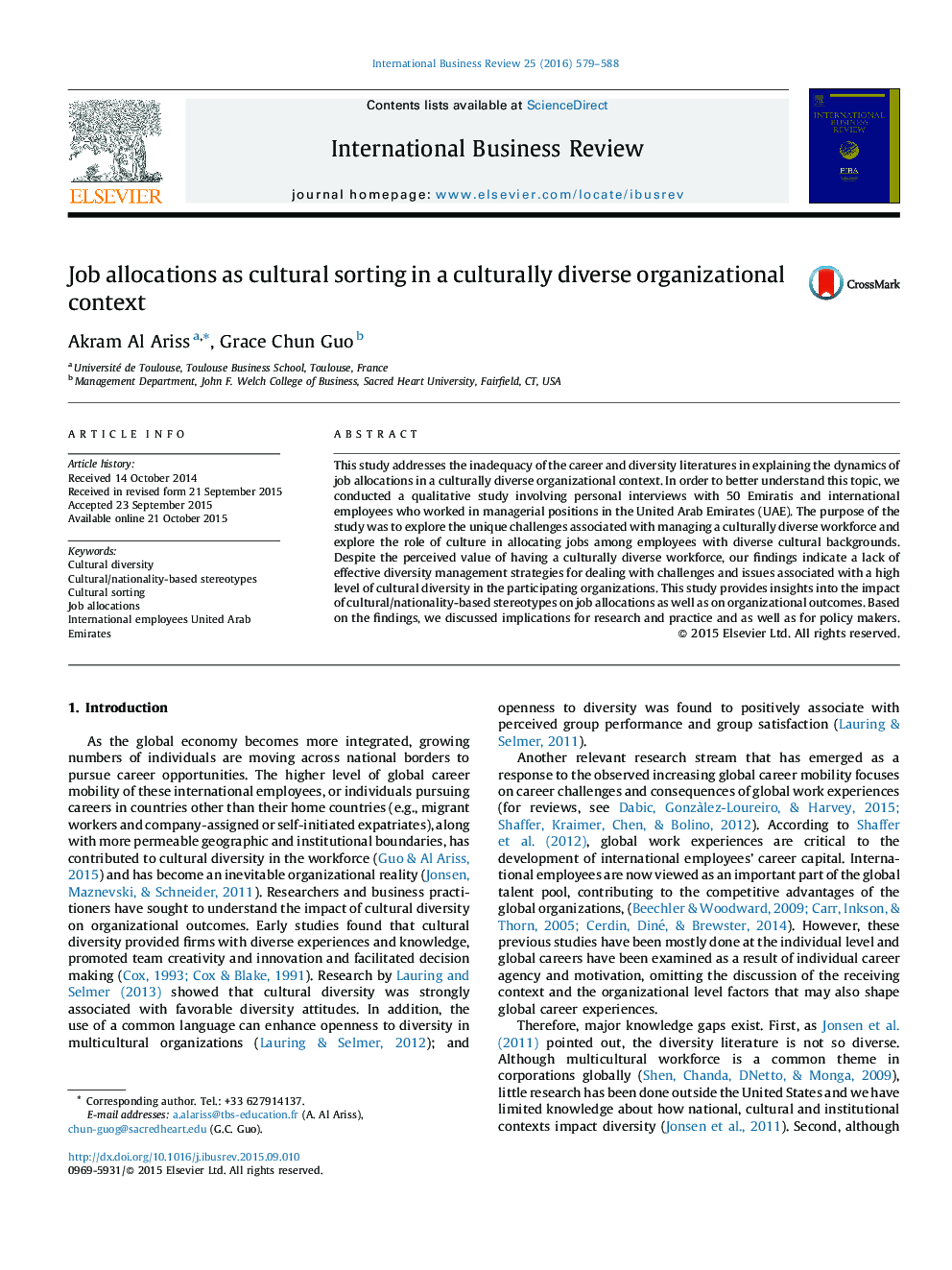| کد مقاله | کد نشریه | سال انتشار | مقاله انگلیسی | نسخه تمام متن |
|---|---|---|---|---|
| 1000255 | 936971 | 2016 | 10 صفحه PDF | دانلود رایگان |
• Consistency in both Emirati and international employees’ accounts about challenges and issues associated with a high level of cultural diversity.
• The importance of culture in explaining career outcomes, namely job allocations, received by international employees in a non-Western, culturally diverse organization context.
• The observed reliance on cultural/nationality-based stereotypes in the job allocative process is due to organizational-level factors such as lack of diversity management strategies and merit-based HR practices, as well as factors related to features of the workforce, that is, cultural distances between local and international employees and cultural distances existing among international employees.
• Cultural biases or nationality-based stereotypes serve as the sorting system through which jobs were allocated based on international employees’ cultural backgrounds or nationalities rather than on their skills and qualifications.
• The observed job stratification or cultural hierarchies created a high level of vertical disparity with certain cultural groups towering over others. Cultural groups, especially the ones occupying the top positions, attempted to preserve the status hierarchy by intentionally distancing themselves from others at lower organizational levels.
This study addresses the inadequacy of the career and diversity literatures in explaining the dynamics of job allocations in a culturally diverse organizational context. In order to better understand this topic, we conducted a qualitative study involving personal interviews with 50 Emiratis and international employees who worked in managerial positions in the United Arab Emirates (UAE). The purpose of the study was to explore the unique challenges associated with managing a culturally diverse workforce and explore the role of culture in allocating jobs among employees with diverse cultural backgrounds. Despite the perceived value of having a culturally diverse workforce, our findings indicate a lack of effective diversity management strategies for dealing with challenges and issues associated with a high level of cultural diversity in the participating organizations. This study provides insights into the impact of cultural/nationality-based stereotypes on job allocations as well as on organizational outcomes. Based on the findings, we discussed implications for research and practice and as well as for policy makers.
Journal: International Business Review - Volume 25, Issue 2, April 2016, Pages 579–588
